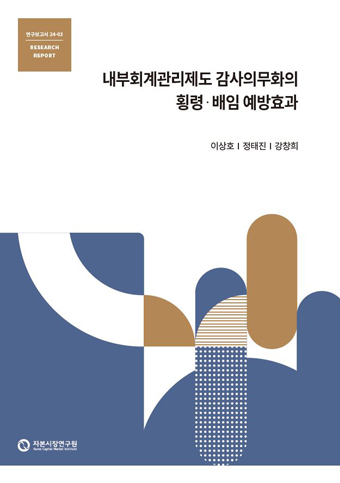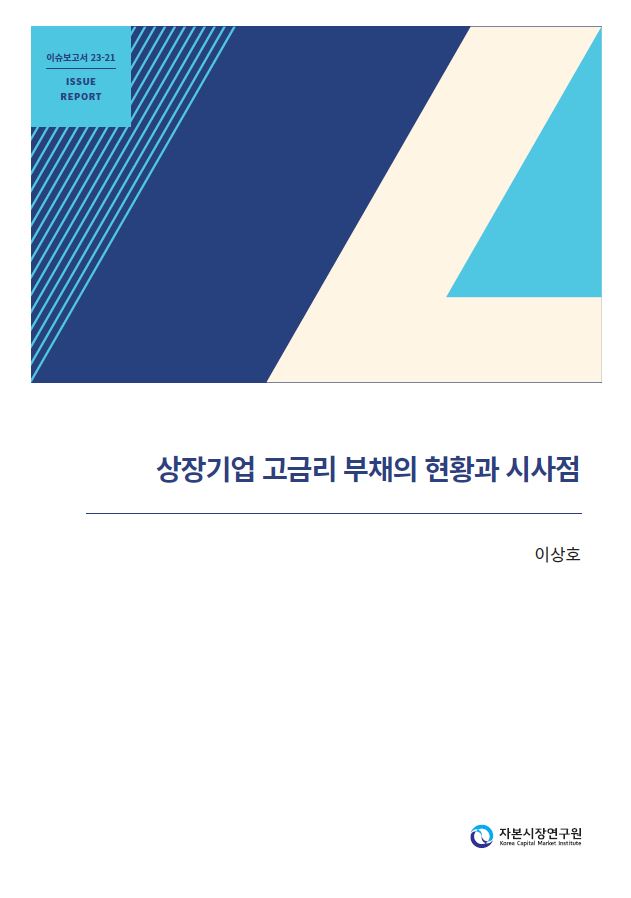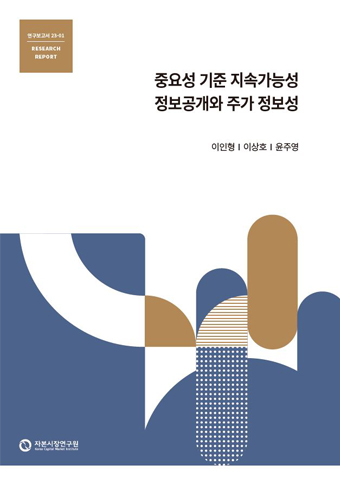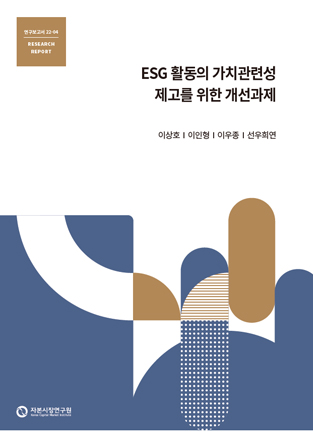Research Staff
Member of the Center, Digital Finance Research Center

Profile
- TEL
- 82-2-3771-0643
- sangholy@kcmi.re.kr
- Education
- Ph.D. in Accounting, Korea University (2019)
- B.B.A., Korea University (2014)
- Professional Experience
- 2019. 9. ~ Current, Research Fellow, Korea Capital Market Institute
- 2019. 3. ~ 2019. 8., Research Fellow, IBRE, Korea University
- 2017. 3. ~ 2020. 2., Lecturer, Korea University
Publications
Opinion
Other Activities
Research Papers
[International Journal Publications]
- "Do Competent Managers Hoard Bad News? Self-regulation Theory and Korean Evidence" (with Ji Yeon Ryu, and Sejoong Lee: Finance Research Letters (SSCI), 41: 101836, 2021)
- "Do Audit Efforts Increase the Future Equity Value of Client Firm?" (with Seung Uk Choi, and Ji Yeon Ryu: Managerial Auditing Journal (SSCI), 36(1): 132~166, 2021)
- "Corporate Tax Avoidance and the Cost of Equity Capital: International Evidence" (with Hong Min Chun, Grace Il Joo Kang, and Yong Keun Yoo: Applied Economics (SSCI), 52(29): 3123~3137, 2020)
- "Real Earnings Management and the Cost of Debt Capital: International Evidence" (with Ji Hye Kim, and Yong Keun Yoo: Asia-Pacific Journal of Accounting & Economics (SSCI), 27(2): 151~172, 2020)
[Korean Journal Publications]
- "The Usefulness of Material Disclosure on ESG Activities" (Written in Korean; with Hee-Yeon Sunwoo, Woo-Jong Lee, and Inhyung Lee: Korean Accounting Review, 47(6): 59~86, 2022, Corresponding Author)
- "ESG Disclosure Incentive: Voluntary or Washing?" (Written in Korean; with Jae Yeon Sim, and Ji Yeon Ryu: Review of Accounting and Policy Studies, 27(1): 249~274, 2022, 1st Author)
- "The Effect of Zombie Leverage at Low Costs on the Productivity of Non-Zombie Firms" (Written in Korean; with Ji Yeon Ryu: Review of Accounting and Policy Studies, 26(1): 125~156, 2021, 1st Author)
- "The Study on the Explanatory Variables of Cash Crunch Risk and the Prediction of Delisting for the COVID-19 Demand Shock" (Written in Korean; with Kwang Bok Hue, and Taedong Kim: Review of Accounting and Policy Studies, 25(4): 145~170, 2020, 1st Author)
- "The Effect of Labor Union and Full-time Employee Ratio on Labor Cost Behavior for Korean Manufacturing Firms" (Written in Korean; with Jin Bae Kim: Korean Journal of Management Accounting Research, 19(2): 1~26, 2019, 1st Author)
- "Audit Opinions and Legal Environments: An International Investigation" (Written in Korean; with Ji Yeon Ryu, and Yong Keun Yoo: Review of Accounting and Policy Studies, 24(2): 1~24, 2019, Co-author)
- "The Association between Accounting Comparability and Unfaithful Disclosure Firm" (Written in Korean; with Bo Young Moon, Ji Yeon Ryu: Journal of Taxation and Accounting, 19(4): 171~214, 2018, 1st Author)
- "Timeliness of Accounting Earnings and Market Anomaly" (Written in Korean; with Ji Yeon Ryu, and Seung Uk Choi: Korean Management Review, 47(4): 753~781, 2018, Co-author)
- "The Relation between Abnormal Audit Fees and Market Anomaly: Do Investors Perceive Abnormal Audit Fees?" (Written in Korean; with Seung Uk Choi: Korean Accounting Journal, 27(1): 1~37, 2018, 1st Author)
- "Problems and Recommendations for Government Performance Evaluation on Taxation policy" (Written in Korean; with Manwoo Lee, and Jun Yong Shim: Journal of Taxation and Accounting, 18(6): 285~309, 2017, Corresponding Author)
- "The Relationship between the Inherent Risk of Detailed Accounts and External Audit Hours, Audit Fees and the Hourly Fee Rate - An Analysis before and after K-IFRS Adoption and Whether the Auditor is Big4 or not" (Written in Korean; with Seok Woo Jeong, and Nam Chul Jung: Study on Accounting, Taxation & Auditing, 59(3): 77-122, Co-author)
- "The Effect of Accounting Conservatism on Future Stock Price Crash Risk - The Moderating Effect of Financial Statements Comparability and Information Asymmetry" (Written in Korean; with Seung Uk Choi: Korean Management Review, 46(2): 561-594, 2017, 1st Author)
- "The Effect of Real Earnings Management on Future Stock Price Crash Risk" (Written in Korean; with Chang Seop Rhee, and Jaeyon Chu: Korean Management Review, 46(1): 287-313, 2017, 1st Author)
[Working papers under review or revision]
- "Internet Penetration and Accruals Earnings Management: International Evidence" (with Tony Kang, Ji Yeon Ryu, and Yong Keun Yoo)
Awards
- Awarded by the Chairperson of the Korea Exchange, 2023
- Best Research Report, Korea Capital Market Institute, 2021
- Best Research Report, Korea Capital Market Institute, 2020
- Deloitte Academic Research Award, Korean Accounting Association · Deloitte Anjin LLC, 2020
- Seok-top Teaching Award, Korea University, 2019 Fall(*2), 2019 Spring, 2018 Fall
- Outstanding Teaching Award, Korea University, 2018 Spring
- Distinguished Research Award, IBRE, Korea University, 2018
- The Best Paper Award, Study on Accounting, Taxation & Auditing, KICPA, 2017



